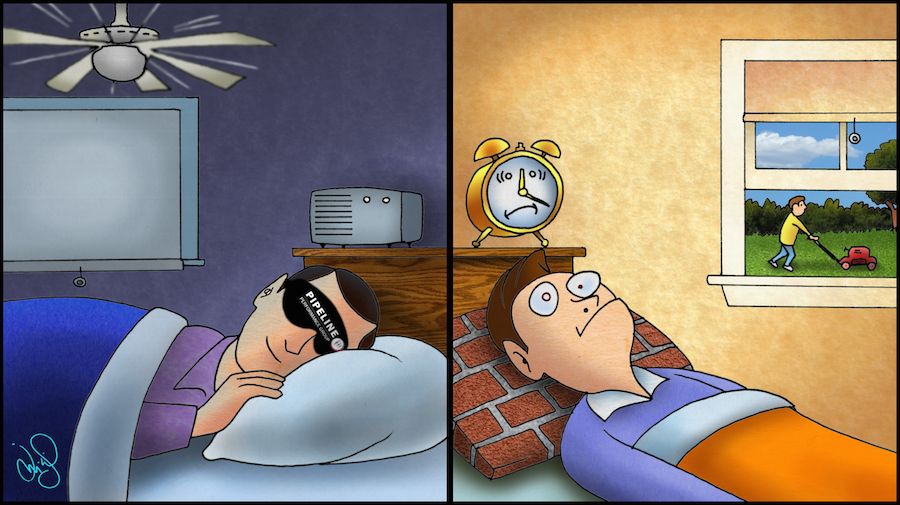People who are successful at shift work develop strategies to enable them to get an adequate amount of sleep. One strategy is to create an ideal sleep environment for sleeping at night and sleeping in the daytime. I have talked to several controllers who have a separate bedroom for sleeping in the daytime. One said he gets better sleep when working night shifts because he sleeps in a different part of the house so that he cannot hear his small children. This requires planning and cooperation from his wife during those seven days on the DuPont schedule when he works night shift. In that bedroom, he has installed blackout shades so that daylight does not seep in around the windows.
Another controller I met is a former mattress salesman. He emphasized in one of our fatigue training sessions that most people do not pay enough attention to how long they have used the same mattress. The beginning of a new year could be a time to renew your mattress. The Better Sleep Council suggests the criteria below for determining when to replace a mattress and its foundation:
- You wake up with stiffness, numbness, aches and pain
- You had a better night’s sleep somewhere other than your own bed (such as a hotel)
- Your mattress shows visible signs of overuse (it sags, has visible tearing, ripping, holes, staining, or damage)
- You are tired after a full night’s sleep
- Your mattress is seven years old or older
I would add one other factor to consider. A mattress will not last as long if one person uses it at night and then their partner uses it in the daytime. If you decide it is time to replace your mattress, do research at www.bettersleep.org or https://sleepfoundation.org/bedroom/.
There are many types of mattresses and bedding today. I have read recently about mattresses you can order online, get delivered in a box, use for up to 100 nights, and then return it if you are not satisfied. For buyers who want to avoid salespeople, that might be an option. I think it might be best to look at mattress in a store. Ask your coworkers about their mattresses and their level of satisfaction with it.
Here are some tips, including the ones already mentioned, to create an ideal sleep environment:
- Clean out the clutter
- Keep the bedroom cool, dark, and quiet
- Get an excellent mattress
- Do not use the bedroom for watching television, playing video games, performing work tasks, or discussing controversial subjects
- Choose wall paint colors (blue, yellow, green) that promote sleep
- Use some type of pleasant scents or aromatherapy in the bedroom
- Point the clock away from you so you won’t be tempted to look at it during the night
Individuals can adopt the practices below for improving their sleep:
- Use sleep masks to block out light if you have not installed blackout shades
- Use earplugs to block noise or use a ceiling fan or white noise machine
- Turn off your personal electronic devices
- Avoid using some types of e-readers in bed just before going to sleep because they emit blue light
- Consider sleeping alone if you or your partner disturb one another




